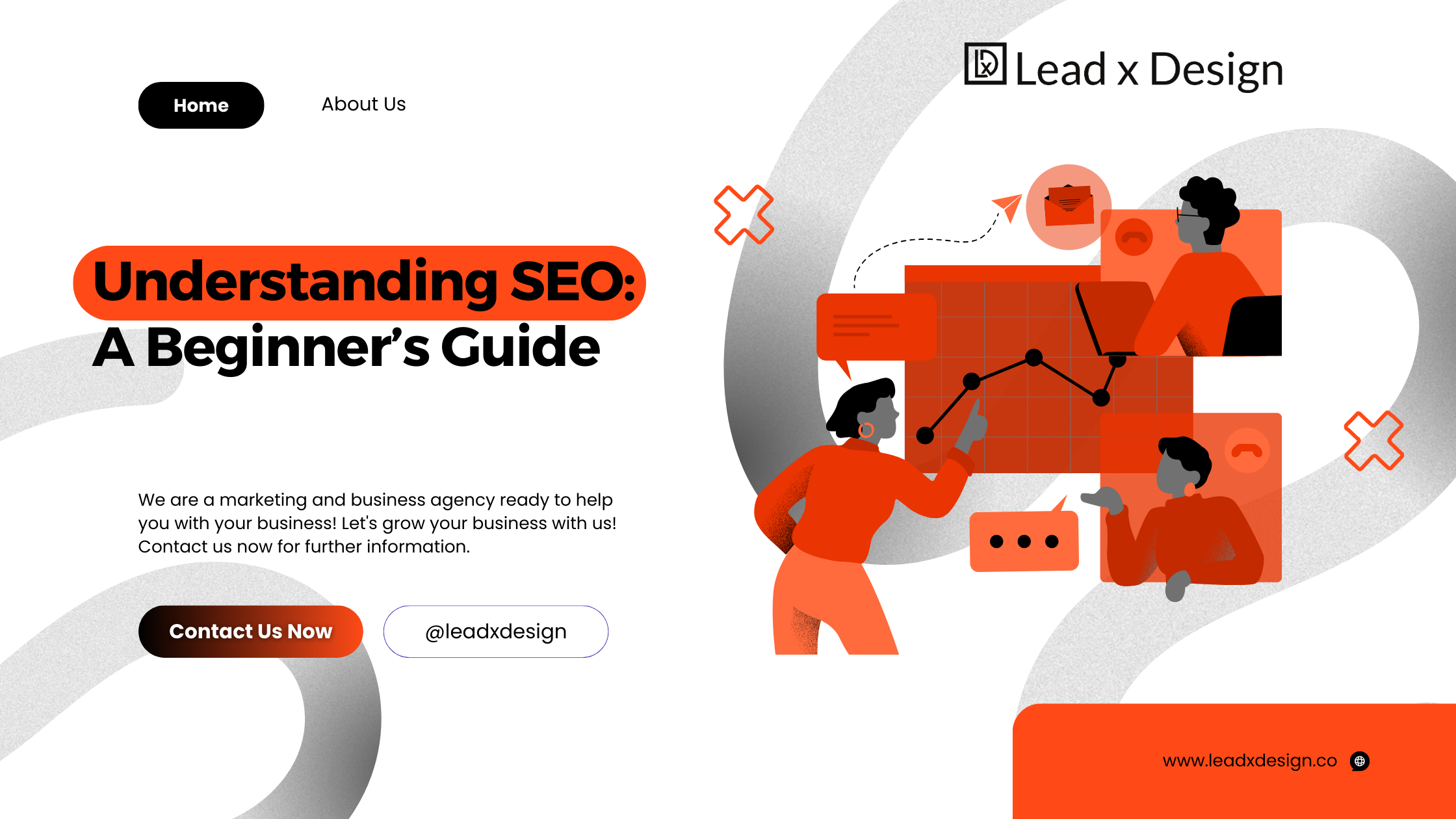Understanding SEO: A Beginner’s Guide to Mastering Digital Success
- Lead X Design
- June 30, 2024
- No Comments
In today’s digital age, having a website is just the starting point. Making it visible and ensuring it reaches your target audience requires leveraging the power of Search Engine Optimization (SEO). At Lead X Design, we believe that SEO is a crucial tool for any business looking to enhance its online presence. Here’s a comprehensive guide to understanding the basics of SEO and how you can use these strategies to transform your website into a powerful asset.
Table of Contents
ToggleWhat is SEO?
The Basics of Search Engine Optimization
SEO stands for Search Engine Optimization, a technique used to increase a website’s visibility when people search for products or services related to your business on Google, Bing, and other search engines. The goal is to enhance your website’s ranking on search results pages, making it more likely for potential customers to find and click through to your site.
Why SEO Matters
Investing in SEO can significantly improve your website’s discoverability and usability, leading to more site engagement, higher conversions, and, ultimately, increased revenue.
Core Components of SEO
Keywords: The Foundation of SEO
Identifying the Right Keywords
At the heart of SEO lies keyword research. It’s about understanding the words and phrases that potential customers use in their search queries. Tools like Google Keyword Planner or SEMrush can help identify these valuable keywords.
Using Keywords Effectively
Once identified, integrate these keywords naturally into your website’s content, titles, meta descriptions, and URLs. The key is to use them strategically without overstuffing, as this can lead to penalties from search engines.
Meta Tags: Enhancing Your Web Pages
Title Tags
Title tags are critical as they define the title of a document and are often used on search engine results pages to display preview snippets for a given page.
Meta Descriptions
These provide concise explanations of the contents of web pages and are also used on search engine results pages. A well-crafted meta description can improve the rate at which people click through to your site from search engine results.
Building Backlinks: Establishing Credibility
The Importance of Quality Backlinks
Backlinks are links from other websites to yours, serving as a signal to search engines that others vouch for your content. The more high-quality, relevant backlinks your site has, the more likely it is to rank well.
Strategies for Acquiring Backlinks
Engage with relevant online communities, create shareable content, and reach out to influencers in your industry to link back to your site.
Optimizing Site Structure
Making Your Site Accessible to Search Engines
URL Structure
A clear, logical URL structure not only helps users navigate your site but also assists search engines in understanding your website’s structure.
Site Navigation
Simplify your site’s navigation to ensure users and search engines can easily find content. This involves organizing your site’s pages into categories and using breadcrumb menus to enhance user experience.
Mobile Optimization: A Necessity
With more than half of all web traffic coming from mobile devices, your website must be optimized for mobile. This means fast loading times, responsive design, and accessible navigation.
Content is King
Creating Valuable Content
What Makes Good Content?
Good content addresses the needs and interests of your audience, provides valuable information, and incorporates keywords naturally. It should also be updated regularly to remain relevant.
Types of SEO-Friendly Content
Blog posts, articles, infographics, videos, and podcasts are all examples of content that can be optimized for SEO.
User Engagement and SEO
Enhancing User Interaction
Engaging content encourages users to spend more time on your site, increasing what is known as ‘dwell time’, a factor that can positively impact SEO rankings.
Tracking Your Progress
Tools for Measuring SEO Success
Google Analytics
This tool allows you to monitor your site’s traffic, user behavior, and conversion rates, helping you understand how well your SEO efforts are performing.
SEO Audit Tools
Tools like Ahrefs or Moz can help you analyze your website’s performance, track rankings, and identify areas for improvement.
Conclusion
SEO is a dynamic and essential strategy for enhancing your website’s visibility and effectiveness. At Lead X Design, we understand that beginning your SEO journey can seem daunting, but with the right tools and strategies, it can significantly transform your digital presence. Start implementing these foundational SEO strategies today, and watch your website rise to new heights in search engine rankings.
Ready to take your website to the next level? Our team at Lead X Design is here to help you implement effective SEO strategies tailored to your business needs. Contact us today to learn more about our services and how we can assist you in achieving your digital marketing goals.
